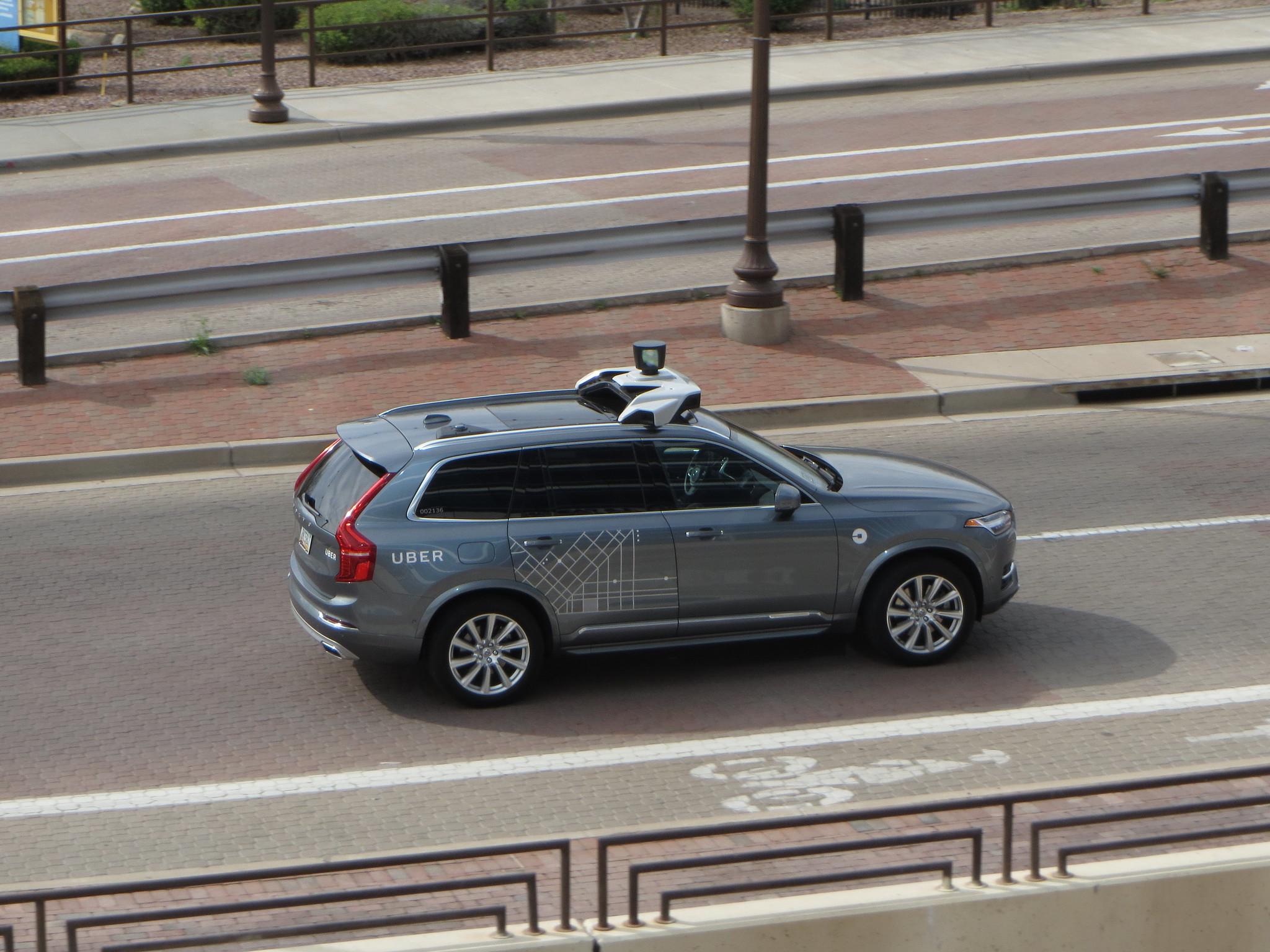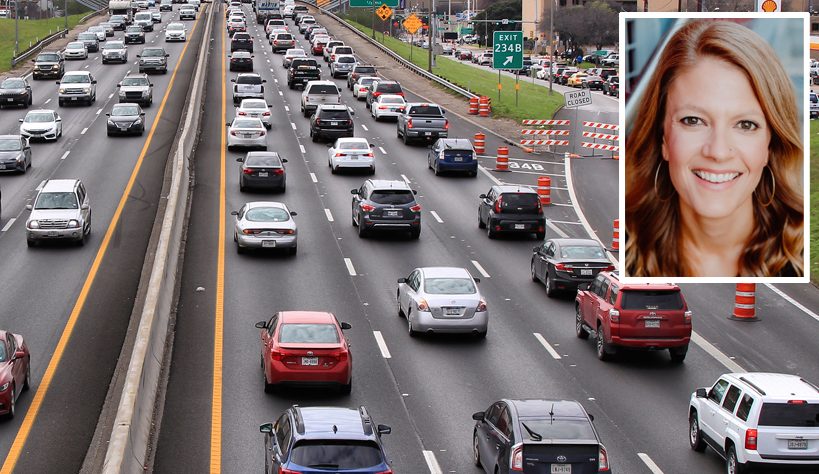Federal Government Doing Nothing On AVs
7:23 AM EST on November 26, 2019

Washington is like a deer in the headlights.
Federal lawmakers, transportation officials, and automakers sparred at two hearings last week over how to ensure the safety of driverless cars — hearings that showed that very little is being done to oversee the rapidly evolving technology.
Members of the National Transportation Safety Board, an independent federal agency that investigates crashes, last Tuesday excoriated Uber for its "inadequate safety culture" and and blamed both Uber and its test driver for a crash that killed a pedestrian in Tempe last year.
But the NTSB's three-member panel also chided the state of Arizona and the National Highway Traffic Safety Administration, which sets federal standards for vehicles, for lacking thorough policies to regulate the driverless car industry.
“In my opinion they’ve put technology advancement here before saving lives,” NTSB member Jennifer Homendy said of the Highway Traffic Safety Administration during the hearing.
The next day at a Senate Commerce, Science, and Transportation hearing, U.S. senators chastised the same agency for dragging its feet to set rules and safety standards. Some lawmakers questioned why the federal agency wasn't following an NTSB recommendation to require automobile developers to make self-assessments instead of keeping them voluntary.
“What’s wrong with having minimum safety standards now?” asked Washington Democratic Senator Marie Cantwell. “We’ve had people testify they don’t want to see them [self-driving cars] in their cul-de-sac because they don’t know what they’re doing.”
New Mexico Democratic Senator Tom Udall compared the NHTSA's lax handling of the automobile industry to federal oversight of the Boeing 737 Max 8, which was grounded over a litany of software problems. He asked whether the agency was confident car manufacturers would stop the deployment of vehicles if a safety glitch was discovered internally.
“While I appreciate the potential benefits of autonomous vehicles, I remain concerned that humans will be used as test dummies,” Udall said. “The public does not want their safety watchdogs getting too cozy with industry. And industry should welcome strong safety regulation as being in their best long-term interest.”
The frustration of lawmakers and bureaucrats is understandable. Car manufacturers have developed prototypes that don't always identify pedestrians and cyclists in the road, and autopilot software that can easily be circumvented. States have rushed to allow vehicles to be tested on public roads without ensuring vehicle safety. The U.S. Department of Transportation has few policies in place to ensure rigorous testing and have not made recalls when vehicles show the potential for danger. And Congress has not adopted new legislation empowering federal and state authorities to regulate the industry.
“The NTSB report [about Uber's crash] should be yet another wake-up call to Congress. They should prioritize the passage of a bill creating an AV safety framework as soon as possible,” Greg Rogers, the director of government affairs for Securing America’s Future Energy told Streetsblog. “The current state of play is that we could buy a car, install a computer and sensors, attend a coding boot camp, code an automated driving system – and then put an automated vehicle on the road without any communication at all with NHTSA. That’s concerning.”
One problem is that Congress and the U.S. Department of Transportation are ill equipped to handle 21st-century technologies like the emergence of artificial intelligence in the transportation industry.
The House Energy and Commerce Committee has historically had jurisdiction over how automobiles are made, while the House Transportation and Infrastructure Committee oversees highways and transit systems. States are responsible for regulating the safety of drivers and have the ability to revoke a vehicle's registration, while driver liability is also handled at the state level. And the NHTSA can issue vehicle recalls over glitches and unanticipated malfunctions like tire blowouts.
But when the car effectively becomes the driver, a whole set of other issues arises.
"Regulating the manufacture of cars is like manufacture of everything else — but operation of the cars is more on the highway side," said Jeff Davis, the senior fellow at the Eno Center for Transportation. "But this puts you in a legal gray area that we've never had before. This is a thorny jurisdictional issue. If you have a federal regulation does it supersede local or state regulations?"
Congress tried to pass an autonomous vehicle bill last year, but that effort failed after trial attorneys objected to any legislation that would pre-empt state lawsuits, and several Democratic senators raised key questions about safety of the vehicles and privacy of drivers.
This year, congressional leaders may link a new AV regulatory measure to the multibillion dollar transportation bill that would fund road and transit projects over the next five years. But for any bill to pass the Senate it must be debated for a few days, and Senate Majority Leader Mitch McConnell has been reluctant to cede time for few topics beyond the consideration of conservative-minded judges.
There's no guarantee President Trump would sign it anyway. He privately told aides that he was skeptical about the new technology and it would never actually work.
"He says, 'Can you imagine, you're sitting in the back seat and all of a sudden this car is zig-zagging around the corner and you can't stop the fucking thing?’" an Axios report said in March.
But federal transportation officials don't need to wait for Congress to act. The NHTSA can design a safety assessment of autonomous vehicles on its own, but doesn't require manufacturers to submit anything. Of the 85 companies that are building self-driving cars, only 16 sent safety plans to the agency.
Acting Administrator James Owens has refrained from establishing stricter requirements because he doesn't want to overly burden the auto industry.
“If we establish standards too quickly we run the risk of stymieing innovation," Owens said at the Senate hearing. "So we want to step back we want to let the innovation occur, and the competition occur.”
Autonomous cars won't be rolled out en masse on our roads perhaps for decades but the car-dependent vision automakers have about the future of our cities is ghastly.
Congress could convene a subcommittee or task force to address how automation and artificial intelligence will affect transportation, as well as other industries and commerce, in the future. But government agencies at all levels must take responsibility to ensure that driverless cars are safe for its passengers and other road users since automakers aren't incentivized to do so.
“At a minimum, AV developers should be required to submit safety self-assessments to NHTSA. These should assure NHTSA and the public that vehicles are safe, can detect cyclists and pedestrians, and give data without disclosing proprietary information – and that’s what NHTSA should be doing right now,” Rogers said. “But since they’re not doing it, Congress needs to pass legislation to require them to do it.”
Read More:
Stay in touch
Sign up for our free newsletter
More from Streetsblog USA
‘We Don’t Need These Highways’: Author Megan Kimble on Texas’ Ongoing Freeway Fights
...and what they have to teach other communities across America.
Should Wednesday’s Headlines 86 SUVs?
American tax law encourages people to buy the gas-guzzling and deadly vehicles, but some in Canada are pushing to ban them.
Brightline West Breaks Ground on Vegas to SoCal High-Speed Rail
Brightline West will be a 218-mile 186-mile-per-hour rail line from Vegas to Rancho Cucamonga — about 40 miles east of downtown L.A. — expected to open in 2028.
Tuesday’s Headlines Fix It First
How voters incentivize politicians to ignore infrastructure upkeep. Plus, are hydrogen trains the future of rail or a shiny distraction?
Why We Can’t End Violence on Transit With More Police
Are more cops the answer to violence against transit workers, or is it only driving societal tensions that make attacks more frequent?




